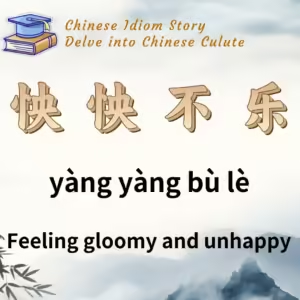
Chinese Idiom: 无可奈何 (Wu Ke Nai He)
English Translation: There is Nothing that can be Done
pīn yīn: wú kě nài hé
Idiom Meaning: This idiom describes a situation where one feels unwilling or unhappy about something but finds that there is no way to change it or do anything about it.
Historical Source: Records of the Grand Historian (史记) – The Biographies of Harsh Officials (酷吏列传).
Idiom Story
During the reign of Emperor Wu of Han, the constant military expansion and heavy taxation caused immense suffering among the common people. The widespread discontent led to numerous peasant uprisings, with rebels forming large groups to attack cities, seize arsenals, free prisoners, and loot the wealthy.
The uprisings alarmed the emperor and his ministers, who were terrified by the growing strength of the rebels. They quickly mobilized troops and employed brutal measures to suppress the revolts, resulting in the deaths of over ten thousand people, including those who supplied food to the rebels. Despite these efforts, the rebels continued to regroup, occupy mountain areas, and disrupt transportation, making it increasingly difficult for the government to regain control.
The imperial court, in desperation, implemented the “Shen Ming Law,” which imposed severe penalties on officials who failed to detect or capture bandits. Officials with an annual salary of less than 2,000 bushels who failed in their duties were to be executed. This law led to widespread fear among lower-level officials, who were unwilling to report the rebels for fear of being implicated if they could not apprehend them. Consequently, the rebellion continued to grow, and the ruling authorities found themselves increasingly powerless to address the situation.
Thus, the phrase “无可奈何” emerged to express the sense of helplessness and resignation when faced with an inescapable or insurmountable






